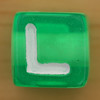This "thing" certainly had a lot of ground to cover! It introduced me to a few new tools, and a few new uses of old tools, for communication in Library 2.0.
Email. I have used email for a long time. I thought that the productivity hints in task 1 were very helpful: (1) shut off auto-check; (2) pick off the easy ones; (3) write less ("just smack it over the net"); (4) cheat (use templates); (5) be honest (just deal with the email). I wrote down these words of wisdom: "Stop letting your email poke you with a stick. It's just not worth it." Personally, I've been thrilled to discover a "quick read" feature in AOL that lets me get through list-serve emails a lot more rapidly than fully opening each email. The key thing is to make email serve you, and not the other way around.
Email for libraries? Yes! This format of communication is familiar to lots of people, and can be adopted easily.
IM. I have used AOL AIM for a few years. I've found it personally useful when a friend is online, and we can chat a little more quickly than via email. I watched the task 2A video, and thought it was clever, but I really wonder if substantive information can be sent back and forth. The 2B article "IM Me" was interesting; I appreciated the idea that IM "aligns library services with the preferred technology of this target population of users." I think IM could be very useful for interoffice communications; my husband's work group has started using it internally. Here is a list of "Best Practices for IM" that I pulled from the article: (1) use a multi-network IM program (like Meeb0?); (2) send descriptive links rather than URLs; (3) employ away messages; (4) create a profile; (5) accept imperfection (!); (6) use abbreviations; (7) never panic; (8) try to use only online sources; and (9) load IM software on public PCs. They all seem like great suggestions for using IM in the library.
For task 2C, I had to find my own buddy to practice IM with, since I'm doing the Things on my own, on my own time. Luckily, my husband was willing to let me practice on him. I am glad to say that I'm a convert to the use of IM. I was able to converse intelligently with DH, and sent him pictures and documents very easily. As a library circulation worker, I think IM would be wonderful for dealing with the questions like "How late are you open tonight?" or "Can you renew my items for me?" I imagine that the reference folks would also find it useful. I find the written format of the communication helpful, and I know that IM would be a big benefit to hearing-impaired individuals.
Text Messaging. Text messaging, or SMS (Short Message Service), is a different story, to my mind. I understand the advantages: it can be done discreetly; don't have to be at your computer to use it; it's convenient for the deaf and hearing-impaired. However, I think that the disadvantages outweight the benefits: you have to pay for the service; it's not speedy (!); and you are limited to 160 characters, of text only.
I didn't understand the task 3A video. It looked like the test messagers were having fun, but I couldn't see any real information being distributed. The task 3B article was interesting; I can see that SMS for library notification of requested materials being in, or other messages of the type might be one potential use. For task 3C, we were to practice SMS with another person; here, I took a short cut and just texted myself! My first text messages! I would need a lot of work on this item. I couldn't figure out how to type a message, but managed to send myself, and then respond to myself, with a "Hi" message. Pretty lame.
Web Conferencing. I think that the tool of web conferencing definitely has some promise for the library. The little podcast on Opal was interesting and made a good point, that a web conference is a lot like a telephone conference on steroids! The task 4A article had some very useful information on the benefits and challenges of web conferencing, along with tips for putting them together. For my task 4B, I watched a Minitex Webinar (an archived one) called "Podcasting 1: What's All the Buzz About?" that was quite interesting. I didn't pick the webinar because the topic necessarily fit with this "thing," but it really seemed to fit. Podcasts would be a great communication tool for the library to use. I plan to get myself set up on a podcast reader and see what's out there. (Note: I see that Podcasts are covered in a later "thing"; so maybe I'll be in better shape to get that "thing" done)
Now, my time to summarize and analyze my thoughts about these web communication tools. Email is a proven and easily adopted tool for the library; a few of the branches where I work use email extensively, and it helps with communication between staff. Many of our patrons choose email notification for their requests. I think that IM has a strong potential, but maybe more for the "front lines" than the deep reference needs. I am still dragging my feet about SMS; it just seems too cumbersome, to me, but that could just be because of my unfamiliarity with it. I think that library use of web conferencing is great! So much information (author presentations, book reviews, book club meetings, board meetings) could be put archived webinars or podcasts. I participated in a live web conference at the U a year or so ago, and even though I was physically in the room at the U, the conference was being shared remotely across the country. The potential for communication and efficiency was terrific!
This was an interesting "thing," and I learned a lot.
Subscribe to:
Post Comments (Atom)
My Trading Card










No comments:
Post a Comment